Welcome Gentle Entities and En Croute Enemies! In the plane of existence inhabited by Hipsters of the Coast today is Heritage Treasures Day in the United Kingdom! What a wondrously delightful holiday to a personage of my draconic sensibilities – I adore the practice of public treasure hoards that can be found in human social systems! We at Mizz Mizzet’s School for Complicated Life Forms are happy to celebrate with our editorial ensemble. Of course the creation and collection of treasure breeds conflict, and etiquette is here to help reduce such conflagrations.
Today as we tackle the second part of Tributary Tyro’s query, we will be examining some of the customs around hoard development and whether or not it is a necessary part of social hosting.
As this is our fourth column, we would like to remind you that generally we answer 3 letters from our interrogative entities across the multiverse each week. If you missed our initial column, you may peruse it at your leisure at this location.
Content Warnings
Mizz Mizzet’s Guide to Magical Manners is pleased to provide Content Warnings, given that solving bad behavior often means describing bad behavior. It shall be noted immediately in front that missive and response, so you may enjoy the others and skip the delicate one.
Our content warning for this week is that we are continuing to answer the second part of a single inquiry with a complex long answer and a small aside about villany.
Hosting and Hoards
Dear Mizz Mizzet
Do I need to bring payment, or snacks, or tribute, or a gift, for my DM? If I want to start DMing, then do I need to start amassing my own hoard?
Thank you for your time.
Sincerely,
Tributary Tyro
Dear Tributary Tyro,
As we explained last week, your inquiry indirectly includes two timeless etiquette questions. We addressed the first, “What is my responsibility as a guest?” and also laid out the proper use of Doritos in traditional gift exchanges with dungeon masters.
Today we shall address the second: “What is my responsibility as a host?”
We previously identified the three types of hosting that are involved in a live gaming experience:
- Your DM is the host of the liminal imaginary you will inhabit during the course of shared play.
- Your social host is the person who invited you to join the group, even if they are not the owner of the space you are playing or the DM
- Your physical host is the individual or group that owns the space you will be playing in.
Sometimes one benign being is all three types of hosts all housed together, the owner of a home or store DMing an event who has personally invited you to participate. However, more often than one might think, the three types of hosting are split among multiple entities. The act of gift giving and good will shift as dynamically as the hosts you interact with. But now, dear Tyro, you have asked about becoming at least one of these types of hosts yourself.
What are the gift exchange obligations of a Small God when Hosting Humans and most other bipedals who need chairs?
The rule of thumb for being a host is the same baseline rule for being a guest. When interacting with new environments or individuals where you are unsure of the etiquette, the mannerly default is “whatever I do should create an inclusive benefit for the group.”
How does one consider benefit? Indeed, how does one define group benefit? The advice below will specifically highlight such benefits and can inform your own future choices.
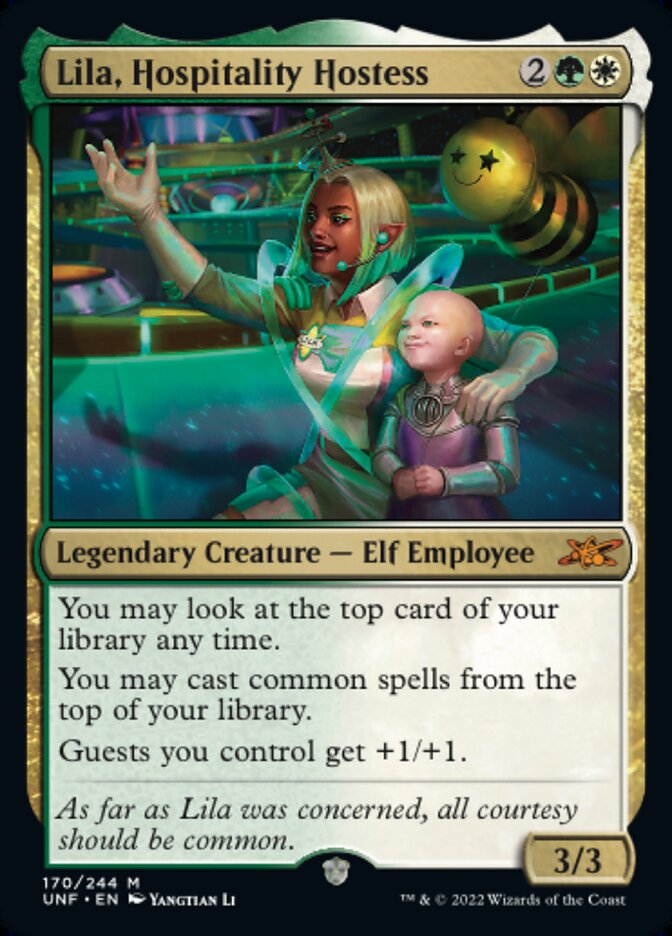
Revisiting the three types of hosting necessary for a game of multiple personages. Location, Social and Games Master gives us the beneficent framework. As a host assembling the group and designing the event, your responsibilities involve setting expectations, creating comfort and encouraging mannerly interactions.
Location Selection
When an individual decides they would like to hold a gaming experience they must first find the location. A good host selects a location based on several criteria:
- Can my guests get to the location easily?
- Can the location accommodate what my gathering requires in space, environment and accessibility?
- Can the location allow, or even provide snacks (allowing guests to bring snacks as host gifts)
- If so will there be any cultural, ritual, philosophical or physical restrictions on types of allowable snacks
- Will participants need to bring their own materials, or does the location already have those materials on hand?
If the location is your personal home, reasonably assess how many it can hold before creating an invitation list. A party, LARP, or small coven brewing meet, moves around quite a bit over the course of several hours. Your location should have lots of space, be safe for movement and if summoning anything from the nether planes, enough headroom for the summoned entity. A good sound system or acoustics is also a plus for hosting these events
Board games, card games and role playing games require participants to be quite stationary for long durations. Make sure your seating is sturdy, comfortable and do not forget to include wingspan for our avian and winged divine and demonic participants!
If the place you have chosen to gather is what anthropologists in the European Social Sciences refer to as a “third place” it is your responsibility as a social host to make all of the arrangements in advance, handle reservations, booking if necessary and developing familiarity with all of the rules of that place to be able to inform your guests of such rules before the gathering. If it is a business associated gathering and a professional third space, the location will often have invitation inserts or wording already prepared that you might use.
If your third space is informal, outdoor or open/unscheduled public space, your obligation as social or location host is to have a “Plan B” and line of muster if the space is occupied or unusable for your group. You must also inform your guests in advance if this type of location (park, classroom, summoning circle on non ritual days) is being utilized, and what the backup plan is. Perhaps you will not need it, but should you need it and already have a plan in place you will be feted as a successful host and often referred to as a model to follow when others are less forward thinking.
Huzzah! As host you have imagined your event, planned a location around your event, secured said location! Now that this preliminary work is done you may get to what is frequently the most difficult part of hosting – finalizing a guest/invitation list.
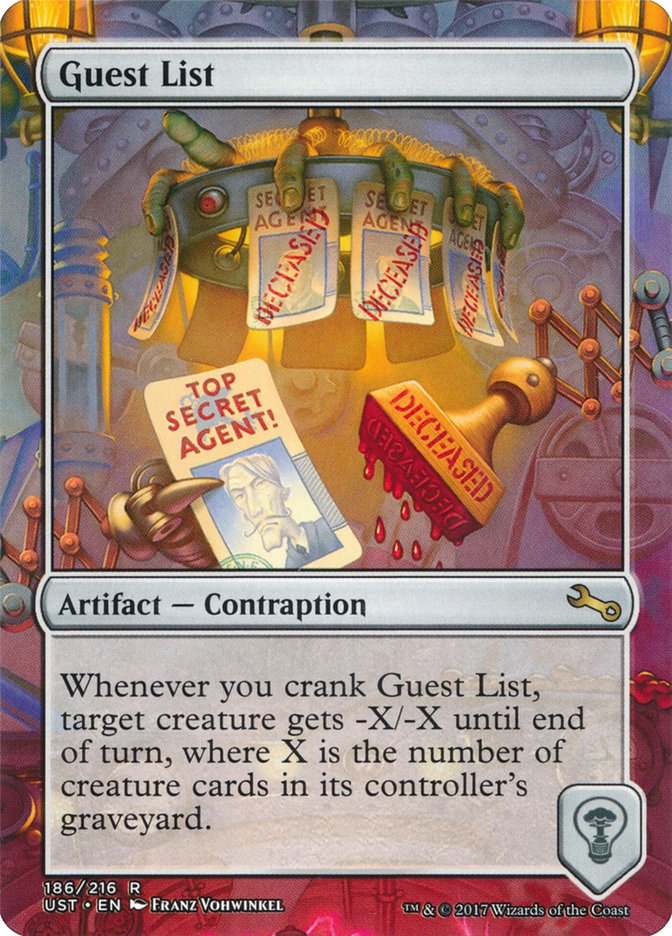
“But Mizz Mizzet, shouldn’t you have had one before you started?” This is a question frequently asked in the School For Complicated Lifeforms in a number of scenarios.
Setting Social Expectations
When you started the journey of planning an event you had an idealized guest list in mind – the act of arranging and organizing the location may change that idealized guest list. The reason the invitations come last is it prevents us from extending invitations that may have to be withdrawn due to limitations of the space or incompatibility of some entities with the environments/timeline/attendees or activities.
It is HORRIBLY RUDE to rescind an extended invitation. It should only be done in extremis. It should never be done for petty personal reasons. Everyone old enough to host in their culture is old enough to be polite for the duration of a single event. Folk may duel on their own time.
While there are many ways to develop a guest list. Today we are focused primarily on hosting a game. The sagas of getting a gaming group together initially, let alone on schedule have created a multiversal song cycle of laments that ring through the celestials for several weeks when sung consecutively. Some of them are so hauntingly mournful they are performed when gods themselves are sent to fade. Knowing this, there is no dispute that It is proper hosting to have a primary invitation list, and then several backup lists.
When inviting folk together for a social event you want to remember the following:
- Invite individuals YOU want to spend time with. Life is too short, even if you are immortal or nearly so, to intentionally spend time with folk who you do not enjoy.
- It is not rude at all to provide some sort of technical tool to your guests to facilitate sharing schedules together, but may add an additional layer of work for someone in your group so the person managing the tool should be thanked formally and publicly.
- Invite individuals who you know will respect the other folk you are inviting.
If you suspect either a cultural or philosophical conflict based in disrespect could occur between two guests, there is truly no etiquette rule requiring all your acquaintances to be present at every event and you do not have to invite “all your friends” to everything. It is perfectly acceptable for your hunting friends not to mix with your fox spirit friends for a game. (It is reasonable to expect all your friends to behave politely as guests at a coronation or a wedding) A gaming space is a space of trust. Balance your guest lists into groups of four or five individuals you think would do well together. The same rules that apply to dinner parties apply to gaming evenings.
Now with your primary invite list developed you should have a list of alternative guests if your first choices are unavailable for any reason at all. When inviting an alternative guest you should never indicate that they are anything but a welcome choice. For a game setting, in most circumstances, you should invite individuals informally and directly. Although you are speaking (or typing, or astrally projecting) you will still be required to provide all the information you would in a written invitation. As an example:
“Hello Rhada, we’re putting together a group to play board games on Tuesdays at the Viking Hall around 7pm. Are you interested in joining us- since it’s late we’ll be ordering pizza while we play as a group”
You have provided
- the time
- the location
- the activity
- the fact that the guest list is fluid
and the food plan for the evening that will allow Rhada to ask follow up questions.
Rhada will either accept or decline. However, if Rhada declines you might be able to ask if they know anyone else who might be interested, or fit well with your crowd. Thus Rhada might be able to become a social host by proxy for you as you build your event.
We’ve now reached the step where you have enough people who have accepted to run the event you wish to host! You have coordinated food, location, participants!. It is now your responsibility to do the set up for the event prior to everyone gathering, and have a plan to accept gifts or offers of help if they occur. (Sometimes guests bring inappropriate foods, or game items. Sometimes guests generally offer to help but the help becomes a new task for a host – you should accept these things graciously with “Oh thank you so much – we’ll be able to use this when we meet at Gracie’s” or a similar future point where the gift WILL be appropriate. Offers of help should always be graciously accepted with thanks but it is also acceptable to either redirect or refuse politely. “Ah Sarkhan is putting away the scrolls already. Perhaps you could help by telling the hatchlings a bedtime story while we clean up?”).
If you are hosting and are NOT the gamesmaster, it is a good practice to invite the gamesmaster to your location an hour earlier than your group arrives so they may set up and the two of you can establish if all the materials needed for the game are present and prepare for the acts involved in co-hosting. If you are both the location host and the gamesmaster, make sure you have things set up in such a way that you will minimize the interruptions location hosting duties might have on leading your game. Having food and supplies set up in easy to access self-serve stations prior to guests arriving means you do not have to get up to assist guests during the game while you are running combat or scoring swiss rounds.
In “Mizz Mizzet’s Manual for Saving Precious Minutes” we also strongly advise determining a dining plan involving ordering outside food BEFORE starting the game. If it is not being covered by the host, all monetary arrangements and the orders should be arranged in advance as well – with a set time to stop for sustenance.
Hosting in the Imaginary
Now we arrive at specific hosting responsibilities as a DM. Humans have developed a lovely set of guidelines to something that used to be ephemeral and informal and in Magic the Gathering community they have called it “Rule 0” in the Role Playing Game Association there was a rules practice session called Slot 0. In Dungeons and Dragons there is Session 0. They share the same goals.
This does not have to be formal, but many community tools exist to help a DM if having an outside structure makes it easier to accomplish the pre-game discussion. I heartily approve! Pregame consensual conferences are deliciously mannerful.
Before the event starts, the DM and players discuss what their expectations are for play style, agree on basic social rules and ask each other any questions or considerations before they begin play.
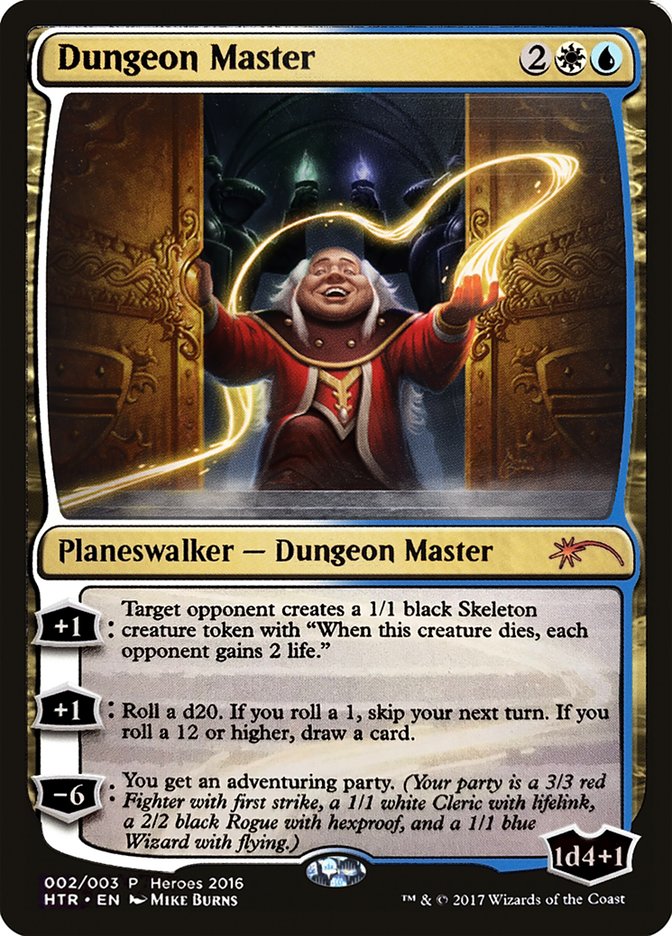
As a DM your role is to take in that information and accommodate it – making it part of how you manage the table and your artistic presentation of the game! It is an improvisational challenge at times. You may be asked to make adjustments you haven’t thought of – but a gracious host is at the service of their guests and you should look at it as the opportunity to level up your hosting and gaming skills. An exception is made for players who ask you to relax your personal moral social standards. You are never required to accept intolerance or rudeness simply because you are the host. As host (and a DM is a Host) your boundaries are to be respected as the initial boundaries of a social setting, however it is your responsibility to make sure they are communicated clearly to prevent misunderstanding. Practicing the opening statements ahead of time allows you to experiment with the best way to set boundaries for your own comfort while – as the druids say, keeping the vibe light.
A sample dialogue:
“I’m so glad you’re here, before we start I’d just like you to know that even if it’s “in character” we’re not going to accept the use of some modern slurs at this table, that our cleric keeps kosher so he brings his own snacks but shares them and we’re ordering from the halal pizza place because it has the best menu for all of us. Goblins are friends not food and your fellow gamers. I won’t tolerate goblin cooking or reproductive jokes at my table. Not even if Gerry is personally cool with it. Here are the house rules…. Now we’ll go around the table and folk can suggest what we would like to add to make this a great experience together.”
Hoards and Hosting Games
Now my dear Tyro – having established the basics of hosting we come to the final specific question you presented. Having recognized that gift giving on the part of guests is a social nicety recognizing the work and investment on the part of the host, you wonder if a DM should start amassing a hoard prior to becoming Dungeon Master? Comme c’est adorable!
There are several differences between a Dungeon Master and a dragon. Despite the fact that the game is called Dungeons and Dragons.
Perhaps you are a dragon whelp from many of the planes that house such a rich variety of draconic entities and cultures? If so, I fully understand the confusion, because in many draconic cultures those that have traditional hoarding practices begin their hoards early and learn hoard management in stages.
Some treat It as a familial pastime, encouraging hatchlings to simply collect and arrange things they enjoy, choosing their own path to their preferred material objects. This encourages experimentation, and sometimes cooperative exchange when a whelp outgrows one’s early childhood hoards and discovers new objects to collect and revel in. Others dragons have deep clan, clade or familial traditions about what is collected be it gold, or princesses, or data, or military advisors trapped in enchanted weaponry. These familial traditions can often mark stages of draconic development through life milestone events and gift giving allows a young dragon to have a starter hoard in the family’s preferred mode before striking out on their own.
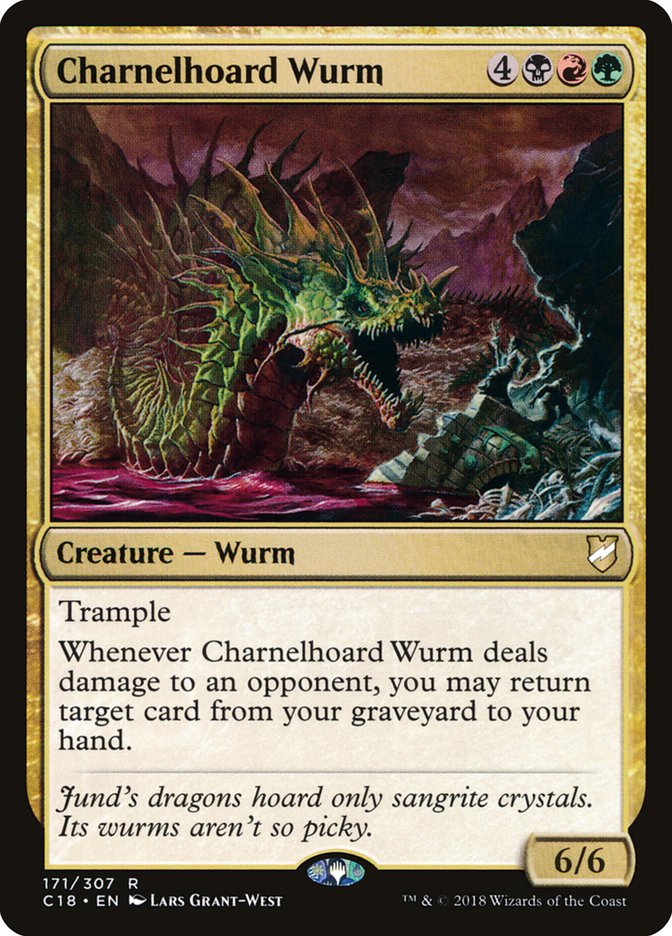
This will be the point where I, as the Founding Entity of Mizz Mizzet’s School for Complicated life forms, state quite firmly that it is rude to collect and keep sentients without consent, no matter what familial pressures exist, unless one is actively participating in one’s culture as a villain.
There are other beings that hoard; Spiders. Ogres, Demons, occasional Humans and some Hamsters and other adorable rodentia have all been known to keep hoards and hordes. I know far less about the etiquette for hoarding for these delightfully diverse groups but would be happy to bring in a cultural consultant for horde etiquette if anyone has any follow up questions.
However, regardless, there is NO requirement for Game Masters, or specifically Dungeon Masters, to hoard anything at all other than dice.

In summation, the most important aspect of becoming a DM is sharing, not hoarding, and you must graciously thank anyone who offers you payments, snacks or tributes but you may absolutely accept these contributions to * start * your hoard if your family has not provided a starter hoard for you.
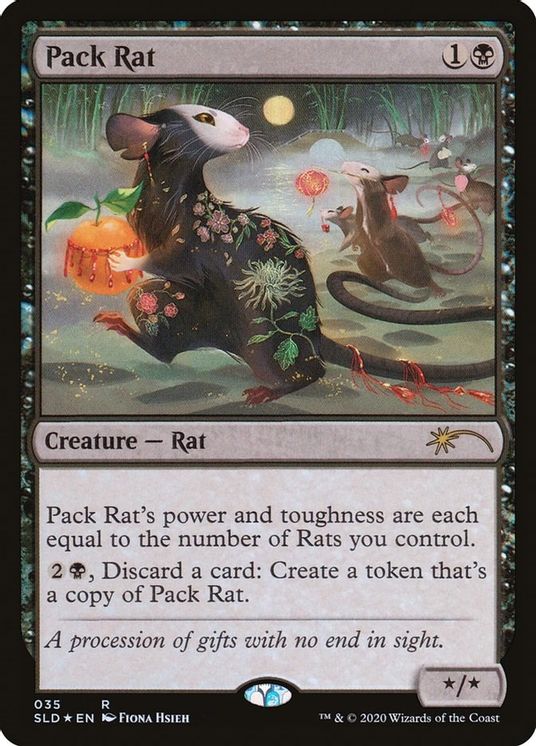
Tyro, it has been an incandescent interlude exploring your entry into the world of social gaming with you. I wish you every success and pleasant companions in your future endeavors.
Effusively Yours,
MM
Thank you to Adrienne Reynolds, for her interplanar transcription services.
Mizz Mizzet Portrait by Andres Garcia
Delightful Readers, Please Submit Your Questions to Mizz Mizzet.
You may submit your questions to Mizz Mizzet using this form.
New Mizz Mizzet columns are posted every Wednesday right here as well as in Hipsters of the Coast‘s weekly email newsletter. You are also encouraged to follow her at @MizzMizzet on Twitter.
Any questions answered publicly will be made anonymous, and noms de plume will be created to represent any parties mentioned.
Born a perfect dragon in an imperfect multiverse, Mizz Mizzet (she/her) is the pioneer broodmother of today’s multiplanar civility movement. She is now working to persuade Planeswalkers to participate in it.
Her tireless efforts to expand the understanding and exercise of etiquette beyond the stereotypical terror of too many pieces of silverware, and whether to use poisons or explosives at celebratory conquest dinners, have not escaped official notice.
She specializes as a consultant in seating arrangements for inter and intra planar political events as long as contracts include the option to eat the rude.
Out of respect for her relative’s delicate sensibilities regarding draconic rank, she does not reside on the plane of Ravnica.

